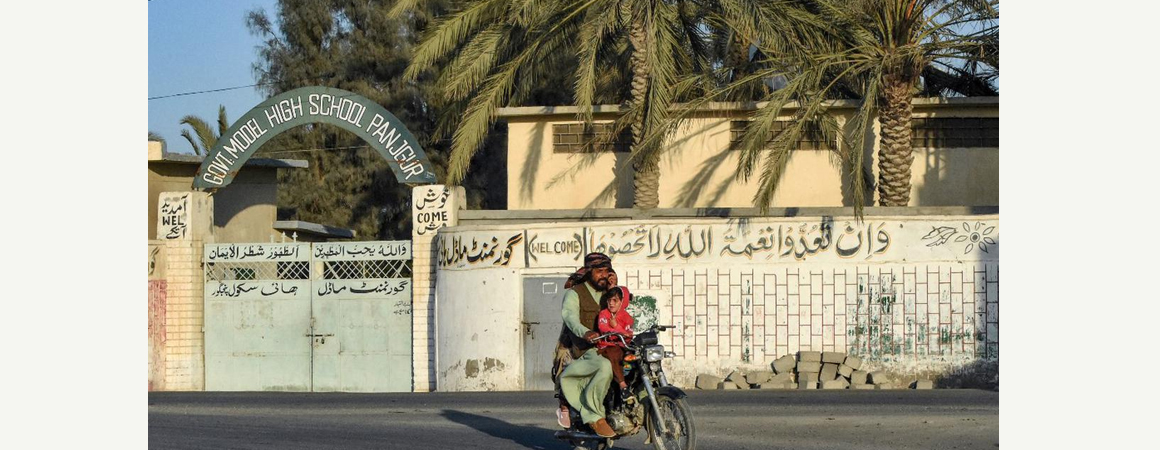Ministry of External Affairs says India understands actions in self-defence; Iran’s strikes inside Pakistan had come just a day after External Affairs Minister S. Jaishankar’s visit to Tehran
India backed Iran on its strikes on alleged terror camps in Pakistan’s Balochistan Province, calling it an act of “self-defence”. In a statement late on January 17, a day after Iranian Revolutionary Guards (IRGC)) fired missiles at what it said were two “important” bases of the Jaish al-Adl terror group in Balochistan Province, that triggered a strong diplomatic protest from Islamabad, the Ministry of External Affairs said that while the issue was a bilateral one between Iran and Pakistan, India has an “uncompromising” position on terrorism. Significantly, the MEA did not comment on Iran’s strikes against Kurdish areas in Iraq, as well as in Syria, all of which took place on the same day.
“This is a matter between Iran and Pakistan,” the Ministry of External affairs spokesperson Randhir Jaiswal said in a statement. “Insofar as India is concerned, we have an uncompromising position of zero tolerance towards terrorism. We understand actions that countries take in their self-defence.”
The strikes on January 16 had come just a day after External Affairs Minister S. Jaishankar’s visit to Iran, where he met Iranian President Ebrahim Raisi and held talks with Iran’s Foreign Minister Amir Abdollahian. Mr. Jaishankar is due to meet Mr. Abdollahian in Uganda for the summit of the Non-Aligned Movement (NAM) countries on January 19-20, while the Secretary of Iran’s Supreme National Security Council is also expected in India shortly for talks with NSA Ajit Doval, indicating Delhi and Tehran are stepping up their diplomatic engagement.
India’s comments defending Iran’s actions indicate support for Iran despite the growing tensions in West Asia between Iran and the U.S. over Israel’s war on Gaza, U.S. strikes on Yemen and attacks by Houthi rebels on ships in the Red Sea. Adrienne Watson, a spokesperson for the White House National Security Council, has condemned the strikes against Iraq, calling them “reckless and imprecise”.
Pakistan’s Foreign Ministry reacted sharply to the IRGC’s announcement of the strikes, recalling its Ambassador from Tehran and cancelling all high-level visits, as did Iraq. Pakistan’s Ministry of Foreign Affairs said that two children had been killed as a result of Iran’s “unprovoked violation” of Pakistani airspace and sovereignty
However, Pakistan’s caretaker Prime Minister Anwar ul Haq Kakar met with Iran’s Foreign Minister Amir Abdollahian at the Davos forum on January 17, who insisted that the strikes had only targeted terrorists not “citizens of neighbours, friends and brothers” Iraq and Pakistan.
“We respect the sovereignty and territorial integrity of Pakistan and Iraq, but we do not allow our national security to be compromised, and we have no compunction about [dealing with] terrorist parties inside Pakistan and Israeli movements in the Kurdistan region of Iraq,” Mr. Abdollahian said. “What we did was aimed at boosting the security of Iran, Pakistan, Iraq, and the region. We consider the security of Iraq and Pakistan to be that of the Islamic Republic of Iran,” he added, reiterating the message in a telephone conversation with the Acting Pakistani Foreign Minister Jalil Abbas Jilani subsequently.
India defends Iran, cites its position against terrorism
Ministry of External Affairs says India understands actions in self-defence; Iran’s strikes inside Pakistan had come just a day after External Affairs Minister S. Jaishankar’s visit to Tehran
India backed Iran on its strikes on alleged terror camps in Pakistan’s Balochistan Province, calling it an act of “self-defence”. In a statement late on January 17, a day after Iranian Revolutionary Guards (IRGC)) fired missiles at what it said were two “important” bases of the Jaish al-Adl terror group in Balochistan Province, that triggered a strong diplomatic protest from Islamabad, the Ministry of External Affairs said that while the issue was a bilateral one between Iran and Pakistan, India has an “uncompromising” position on terrorism. Significantly, the MEA did not comment on Iran’s strikes against Kurdish areas in Iraq, as well as in Syria, all of which took place on the same day.
“This is a matter between Iran and Pakistan,” the Ministry of External affairs spokesperson Randhir Jaiswal said in a statement. “Insofar as India is concerned, we have an uncompromising position of zero tolerance towards terrorism. We understand actions that countries take in their self-defence.”
The strikes on January 16 had come just a day after External Affairs Minister S. Jaishankar’s visit to Iran, where he met Iranian President Ebrahim Raisi and held talks with Iran’s Foreign Minister Amir Abdollahian. Mr. Jaishankar is due to meet Mr. Abdollahian in Uganda for the summit of the Non-Aligned Movement (NAM) countries on January 19-20, while the Secretary of Iran’s Supreme National Security Council is also expected in India shortly for talks with NSA Ajit Doval, indicating Delhi and Tehran are stepping up their diplomatic engagement.
India’s comments defending Iran’s actions indicate support for Iran despite the growing tensions in West Asia between Iran and the U.S. over Israel’s war on Gaza, U.S. strikes on Yemen and attacks by Houthi rebels on ships in the Red Sea. Adrienne Watson, a spokesperson for the White House National Security Council, has condemned the strikes against Iraq, calling them “reckless and imprecise”.
Pakistan’s Foreign Ministry reacted sharply to the IRGC’s announcement of the strikes, recalling its Ambassador from Tehran and cancelling all high-level visits, as did Iraq. Pakistan’s Ministry of Foreign Affairs said that two children had been killed as a result of Iran’s “unprovoked violation” of Pakistani airspace and sovereignty
However, Pakistan’s caretaker Prime Minister Anwar ul Haq Kakar met with Iran’s Foreign Minister Amir Abdollahian at the Davos forum on January 17, who insisted that the strikes had only targeted terrorists not “citizens of neighbours, friends and brothers” Iraq and Pakistan.
“We respect the sovereignty and territorial integrity of Pakistan and Iraq, but we do not allow our national security to be compromised, and we have no compunction about [dealing with] terrorist parties inside Pakistan and Israeli movements in the Kurdistan region of Iraq,” Mr. Abdollahian said. “What we did was aimed at boosting the security of Iran, Pakistan, Iraq, and the region. We consider the security of Iraq and Pakistan to be that of the Islamic Republic of Iran,” he added, reiterating the message in a telephone conversation with the Acting Pakistani Foreign Minister Jalil Abbas Jilani subsequently.






NO COMMENT